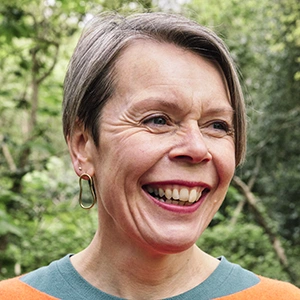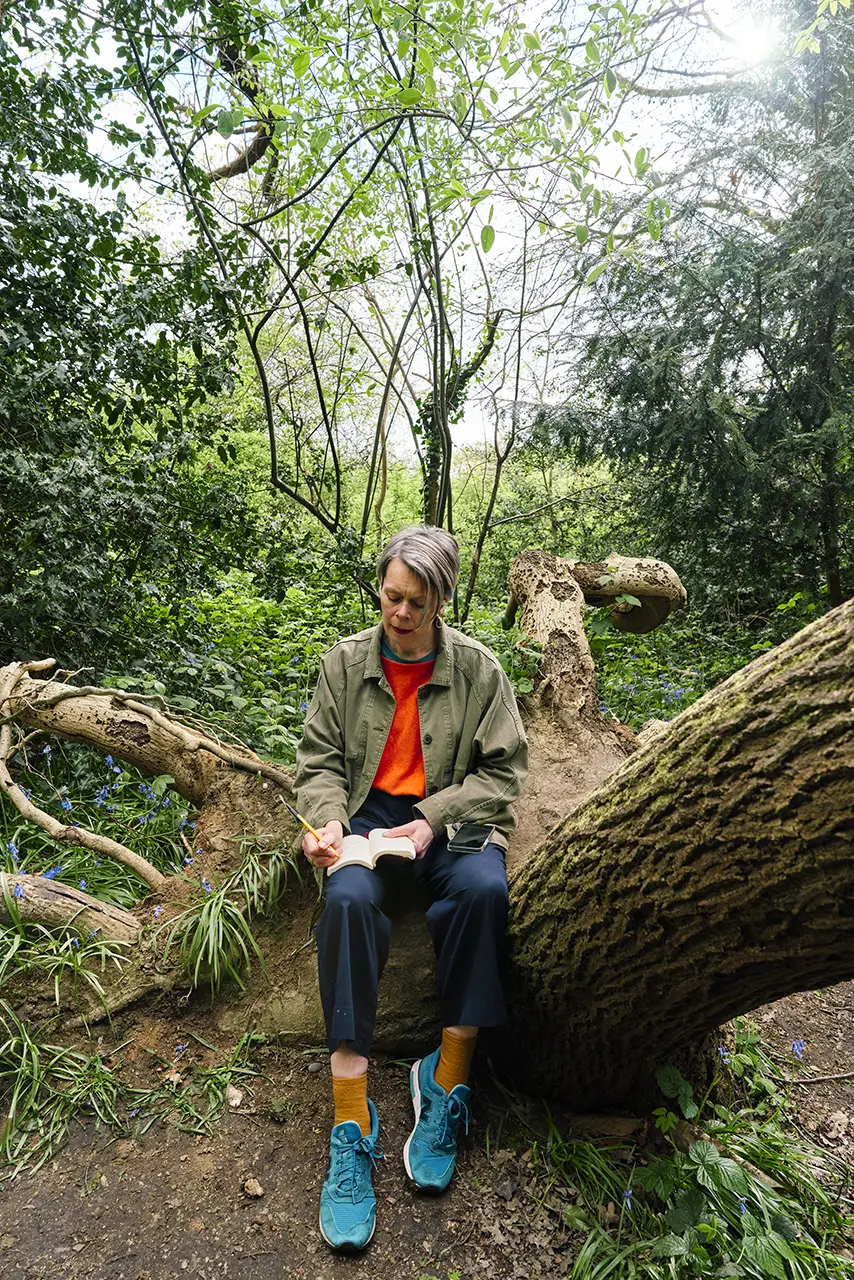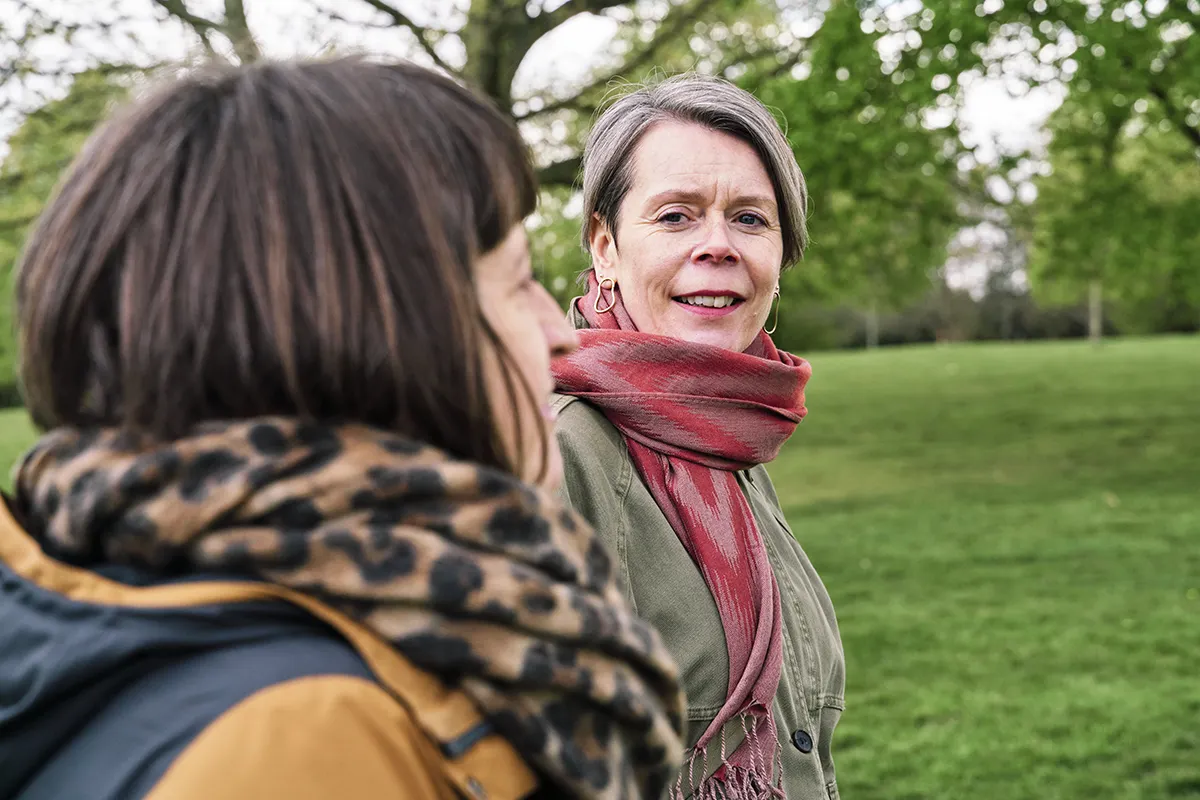Are you procrastinating? Perhaps you feel like you’re ‘falling behind’ and need motivation? This blog, I hope, will leave you with some great ideas and a 5-step strategy to set and achieve goals using values. Goals that have meaning and are personal to you, in a way that feels right for you, with the aim to stop you procrastinating further. Consider this your kick-up the bum to get back on track this year!
Why goal setting fails
I analysed some client life coaching conversations over a few years, and found these to be the main reasons for when goal-setting fails:
- A goal doesn’t align with what truly matters to the individual: they lack of meaning or purpose, so there’s little motivation to work towards them
- The focus was heavily on goal attainment (the end-goal/the destination), missing out on the potential ie opportunities, self-development (the journey)
- When the external environment didn’t seem to support or allow for an individual to thrive – ie a toxic workplace, unhealthy relationships (professional and personal), challenging life transitions/situations
- When an individual’s personal, internal environment wasn’t resourced or equipped enough (at that time,) to reach the goal ie skills, strengths, self-awareness, resilience, self-esteem, low confidence
- When the goal was perceived as ‘difficult’ or ‘hard’, and that narrative took over – fixed mindset (read about Growth Mindset here)
When goal-setting works
We humans are naturally goal-orientated beings, always moving towards or away from goal directed behaviour (Carver and Scheier 1998). Yet we humans are also easily distracted and get stuck when it’s difficult or we don’t understand WHY. One approach my coachees and I use successfully is to understand the meaning and intrinsic motivation behind the goal, which naturally engages and supports well-being.
You may also want to read an earlier take I wrote about goal-setting and how to achieve goals, which includes useful coaching questions, here.
Self-Concordant Goals: A Goal-Setting Approach using Values
Self-Concordant Goals (Sheldon & Eliot 1998) is a powerful framework to create meaningful goals rooted in your personal values and interests. This is no SMART goal quick-fix approach (more on this later). It is powerful in understanding one’s motivation for long-term goals and desires to succeed. Importantly, it promotes a positive, emotional spiral of well-being.
Think of Self-Concordant Goals like a thriving, strong tree…
- Your values are the trunk – the strong core, giving purpose and a sense of identity
- Your main goals grow like branches, each reaching towards the sun, always connected to your trunk
- Smaller goals are the twigs, extending further, detail, refining your path
- Finally, the buds, which become then leaves are the actions and choices you make daily, each one vital and impacting the whole system of the tree
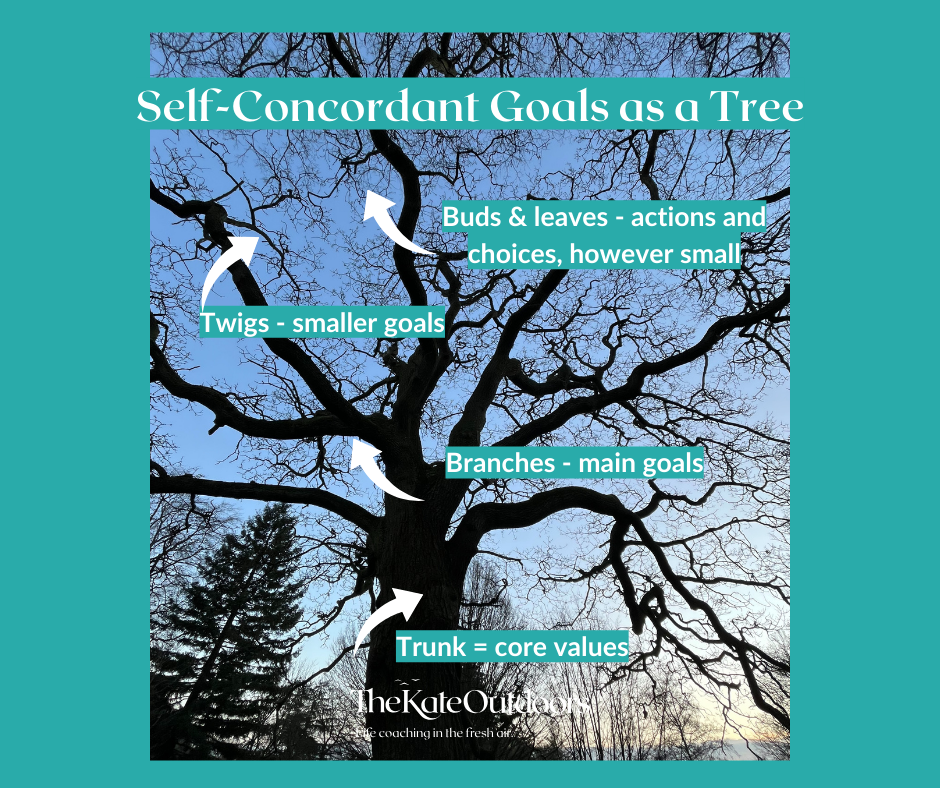
3 Key Points about Self-Concordant Goals:
- Aligns with values: They reflect and align with your personal values; what’s important to you
- Intrinsic motivation: Driven by internal desires and interests, not external expectations or pressures
- Sense of authenticity: They resonate deep down, ‘the real me’/authentic-self
5 Steps to Set and Achieve Self-Concordant Goals with Examples
- Create a list of goals you want to achieve this year – don’t overthink it, put it to one side.
Example: one of my goals for 2024 was...
I want to travel more this year (we’ll build on my goal as part of the exercise )
2. Now consider your values and in no particular order, what are they? Your values are what you hold near and dear, shaping your priorities and guiding your decisions.
Examples of values
Family, love, curiosity, personal development, helping others, fun, collaboration, community, environmental awareness (these are mine).
Coaching questions to clarify your values
- What really matters to me in life – putting aside any expectations or obligations?
- What do I admire most in others? What might this tell me about myself?
- What am I unwilling to compromise on, even in difficult situations?
- And a nature and values inspired coaching question; How do I adapt to life’s storms – do I bend like a silver birch or stand firm like an oak?
Or, use this FREE List of Values and share this post with a friend who’d benefit.
3. Link your values to your goals to intrinsically motivate you (that is, to engage, interest and encourage you, yourself). This might be challenging! Note: we’re not looking for external pressure or obligations on you here – that’s extrinsic motivation – the kick-up-the-bum Drill Instructor approach is for another time!
Back to my travel goal example, this time using my values …;
I want to travel more this year, explore new places, because I love learning and experiencing different cultures and people through their food, language and environment. It makes me feel happy! I appreciate what I have and what’s around me.
4. Create action steps to set personal goals
Identify potential actions or steps towards your goal. Using the *SMART goal acronym (see below) could be useful here.
My travel goal example is now broken into action steps behind the goal:
Step 1. I’m going to learn some basic Portuguese using Duolingo over the next 3 months
Step 2. I will contact my friends who live abroad and plan to meet up with at least 2 of them….Etc
*SMART Goals – an acronym for:
- Specific
- Measurable
- Achievable
- Realistic
- Timebound
5. Write down your goal, values and different steps, or map it out in colour on a big sheet of paper. People who write down their goals are 42% more likely to achieve them, according to research at the Dominican University in California, by Dr Gail Matthews.
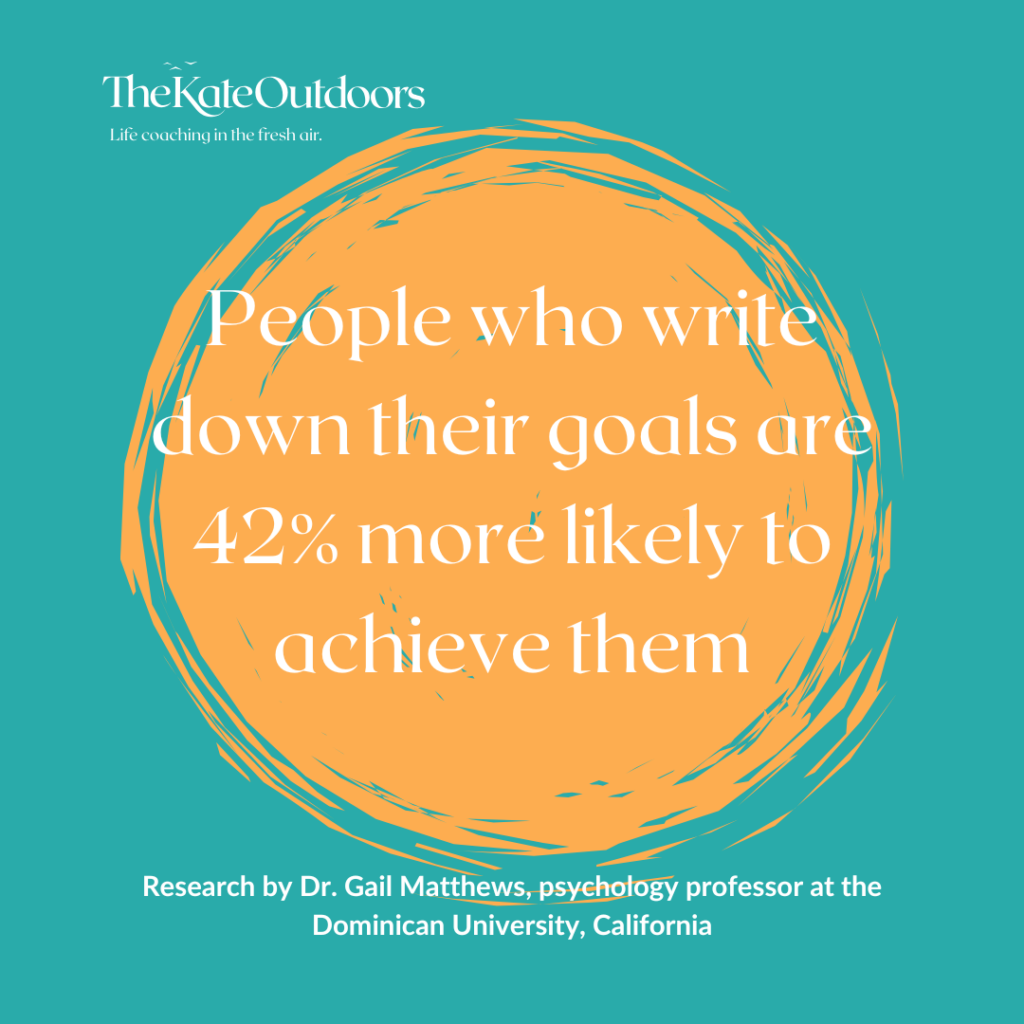
4 Practical Tips for Staying on Track with your Goals
- Review and celebrate progress and small wins regularly
- Be flexible – it’s OK to adjust goals and steps
- Get an accountability partner to check in with
- Keep your goals visible and write it down – on paper on the fridge, by your desk…
How did I do with my goal to travel last year? I nailed it! And loved it! I didn’t learn Portuguese or go to Portugal, but instead I went to Catalunya, learned some basic Catalan and successfully played bingo at a fiesta, drinking lots of wine with locals!
So if you’ve been procrastinating, and want to be motivated and enthused, are you encouraged to set self-concordant goals today?
Book a free call with me to see how I can get you motivated and achieve your goals – in a way that’s right for you!
